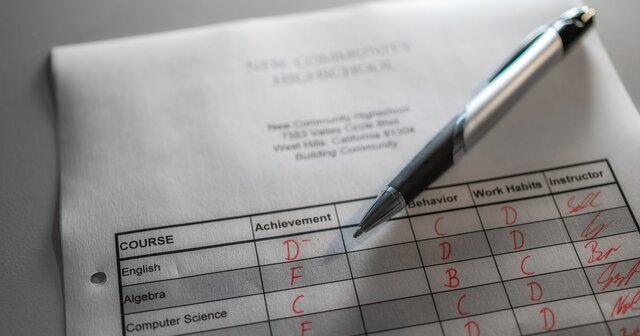
This article originally appeared in The Detroit News June 10, 2025.
A new coalition wants a massive tax hike for public schools. Invest in MI Kids proposes a constitutional amendment that would raise $1.7 billion from high-income individuals and couples. This coalition is part of a growing chorus of calls for more school funding, even though school spending in Michigan has never been higher.
Costly education ideas are in vogue among the political class. Gov. Gretchen Whitmer wants a $762 million expansion of PreK for All. Detroit Mayor Mike Duggan is pushing a $4.5 billion education plan. A recent study said Michigan schools need $23 billion for building repairs. And the State Board of Education is calling for smaller class sizes.
Still, the Invest in MI Kids campaign insists that Michigan’s public schools are underfunded and that the rich must pay more.
Molly Sweeney is organizing director of 482Forward, a member of the ballot proposal coalition.
“We’re just doing more with less,” Sweeney told the Detroit Free Press, “and in an ever-changing world, we need to give Michigan students their best shot to be successful and that takes investing in that.”
But Sweeney has it backward. Michigan schools are doing less with more. Education spending in Michigan is up, up, up. Michigan taxpayers spend a record-high $15,000 per student. When Whitmer signed the current education budget, she bragged that her education budgets had set new records six years running. This past May, voters approved $1 billion in local school spending. Michigan spends more on education (per pupil) than most states.
We spend more money on fewer students. Public school enrollment has dropped for decades, from 2.1 million kids in 1970 to just 1.4 million today.
But more money hasn’t produced better outcomes. Academic performance is abysmal. The state’s math and reading scores have yet to improve to pre-lockdown levels. Michigan’s fourth-grade reading scores were 44th in the nation, even falling below Mississippi. My colleague Molly Macek notes that only 5% of Detroit fourth graders can read at grade level.
At least Whitmer, champion of record spending, admits Michigan’s poor education record. “We spend more and get less. It’s not acceptable,” she said in her last State of the State address.
Meanwhile, the state has dismantled key accountability measures designed to improve performance. Ranking schools with an A to F letter grade, holding third graders back a year if they cannot read, teacher evaluations and merit pay — these were all weakened or repealed by the Michigan Legislature after the 2022 elections gave the Democratic Party control of both chambers.
The Invest in MI Kids coalition has yet to address several questions. Given Michigan’s record spending, why are students performing so poorly? What would another billion in education spending produce? How much will it boost student performance? How will it affect graduation rates? What are other states (Mississippi, perhaps) doing that we should mimic?
If Michigan lawmakers wish to spend another billion dollars on education, they could do so without a dime in new taxes. The Mackinac Center Legal Foundation just filed a lawsuit against the process the Legislature uses to dole out billions of dollars in pork-barrel spending.
This money goes to local and private entities in the form of “community enhancement grants.” Baseball stadiums, a cricket field, a curling facility and a distillery — these are just a few of the projects Michigan taxpayers are funding through unconstitutional spending.
Before Michigan voters agree to higher taxes, they deserve real answers about where the money is going and why the billions we spend today produce so little. Schools need accountability, not a blank check.
Permission to reprint this blog post in whole or in part is hereby granted, provided that the author (or authors) and the Mackinac Center for Public Policy are properly cited.
Get insightful commentary and the most reliable research on Michigan issues sent straight to your inbox.

The Mackinac Center for Public Policy is a nonprofit research and educational institute that advances the principles of free markets and limited government. Through our research and education programs, we challenge government overreach and advocate for a free-market approach to public policy that frees people to realize their potential and dreams.
Please consider contributing to our work to advance a freer and more prosperous state.

Donate | About | Blog | Pressroom | Publications | Careers | Site Map | Email Signup | Contact